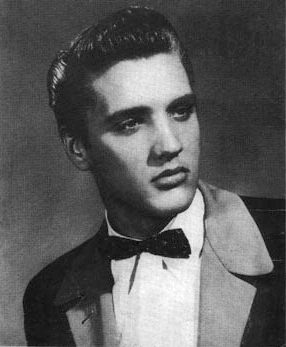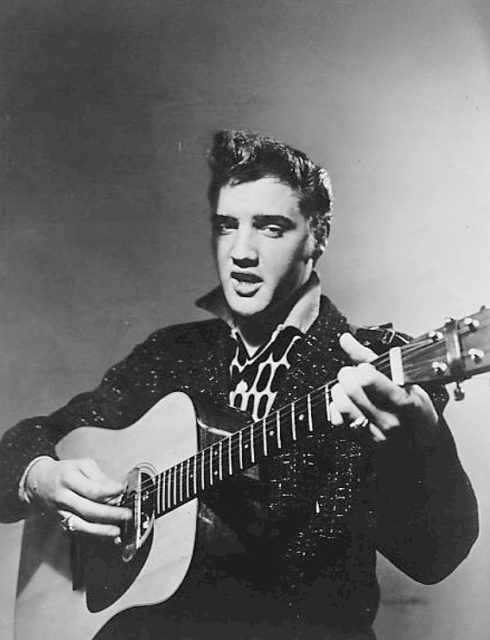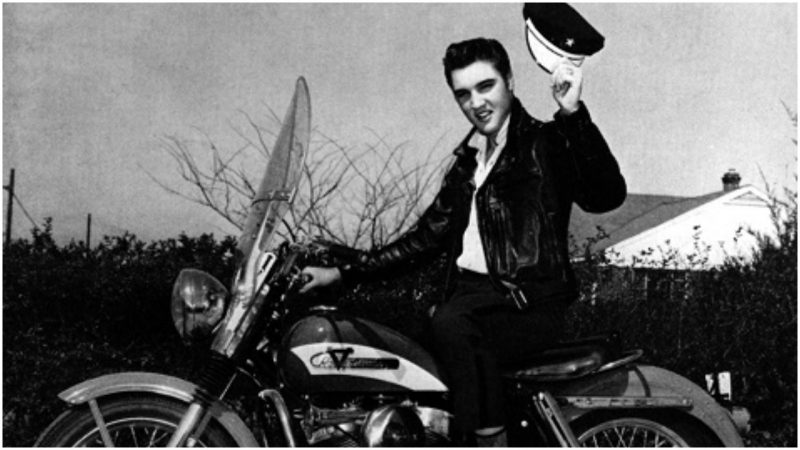Baseball broadcasters’ tongue-in-cheek description of a home run by using the phrase “Elvis has left the building” is probably one of the most popular ways to say that the ball went over the fence. However, this is just one of many ways to use this popular phrase.
Every American is familiar with the phrase “Elvis has left the building.” It is so popular that even kids, who never even heard of Elvis Presley, use it. For years, we have been using this phrase to humorously emphasize that something is definitely over and that there is nothing we can do about it.
It is clear that we owe this phrase to Elvis Presley, but what is the story behind it?
Frank Zappa used the phrase in the opening track of his first live album compiled from various performances on his 1988 world tour (his final outing), Broadway the Hard Way:
Elvis has just left the building
Those are his footprints, right there
Elvis has just left the building
To climb up that heavenly stair
Dire Straits also used the phrase in their song Calling Elvis that first appeared on the final studio album by the band, On Every Street (1991):
Calling Elvis
Is anybody home
Calling Elvis
I’m here all alone
Did he leave the building
Or can he come to the phone
Calling Elvis
I’m here all alone
The phrase has been used frequently by the movie industry. Michael McManus (Stephen Baldwin) used the phrase “Elvis has left the building” in the 1995 film The Usual Suspects and Captain Steven Hiller (Will Smith) also used the phrase in the 1996 science fiction action film Independence Day.
Anyone who watched the legendary television series, Frasier, knows that the closing theme ends with the statement “Frasier has left the building!”
But how did this phrase became so popular in the United States and who coined it? It’s obvious that we owe the phrase to Elvis Presley as we mentioned earlier. However, promoter Horace Lee Logan, who was the announcer at the Louisiana Hayride show, in which Elvis often performed, was the first to use the term.
It was October 16, 1954, when Frank Page introduced Elvis on his first radio broadcast: “Just a few weeks ago”, he said, “a young man from Memphis, Tennessee, recorded a song on the Sun label and in just a matter of a few weeks that record has skyrocketed right up the charts. He’s only 19 years old; he has a new distinctive style. Elvis Presley! Would you give him a nice hand?”
This is how the career of one of the most significant cultural icons of the 20th century began and the “King of Rock and Roll” – Elvis Presley. He was paid $18 per week when he appeared for the first time at the Louisiana Hayride show but it didn’t take him long to become one of the most popular artists of the 20th century. In the period that followed the 19-year-old became so popular that he decided to put an end to his contract with the broadcast and reportedly paid 10,000 dollars to buy out the rest of his contract. However, he agreed to perform one final show.

It was December 16, 1956, when Elvis made his final performance on The Louisiana Hayride at the Hirsch Youth Center, Louisiana Fairgrounds, Shreveport, Louisiana. This was the day when the now legendary phrase “Elvis has left the building” was used for the first time.
Elvis was the third of many performers and the star of the night. When Elvis finished performing and exited the stage many of his young fans continued screaming for him, and some of them even headed for the exits hoping that they would see Elvis outside. It was at this point when announcer Horace “Hoss” Logan said:
“All right, all right, Elvis has left the building. I’ve told you absolutely straight up to this point. You know that. He has left the building. He left the stage and went out the back with the policemen and he is now gone from the building.”

However, it was Al Dvorin who worked as an announcer at Elvis’ concerts and popularized the expression. While it was Horace “Hoss” Logan who used the words to get people to stay, Dvorin used them to make people leave. Throughout the years the phrase became a catchphrase and a punchline and it is now widely used in everyday speech.
Elvis went on to cement his place in history as the King of Rock ‘n Roll and an icon of the 20th century. Although “Elvis left the building” far too early, he was, is and always will be the greatest of all.
